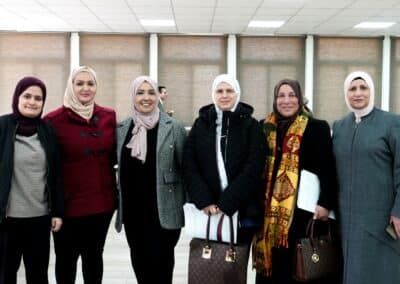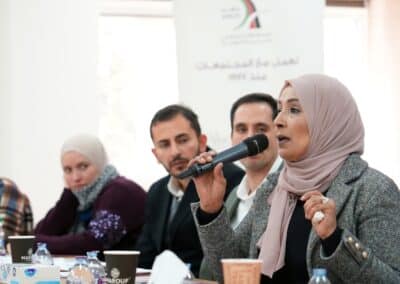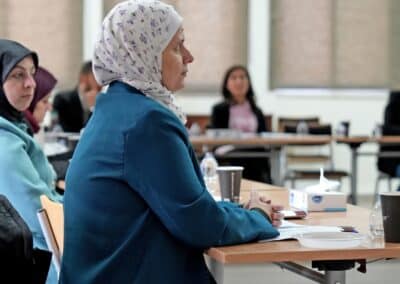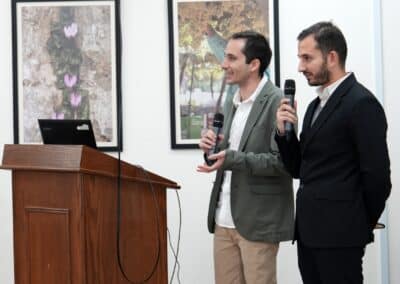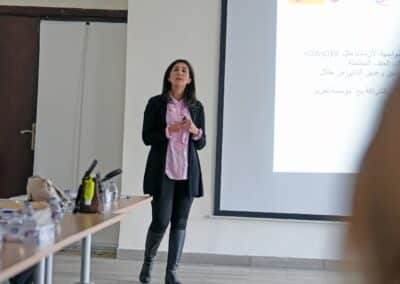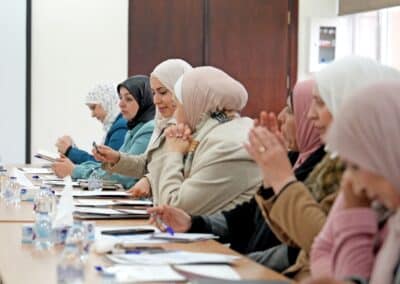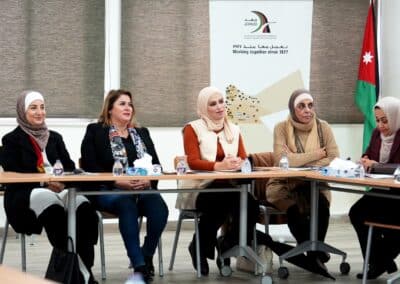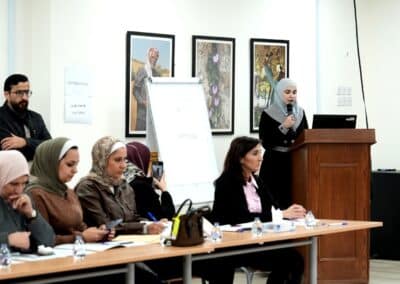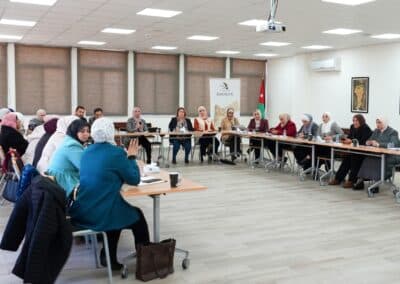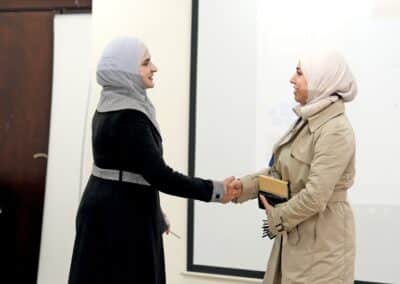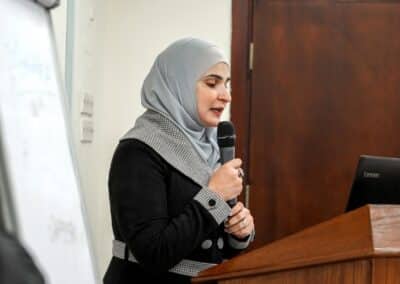Last December 13, we organized a presentation day of the “Guide for private sector employers (to promote a safe work environment for the participation of women in the labor market)” in Jordan, a meeting in which the next closing of the Project that we are developing in the country was also celebrated, in collaboration with The Jordanian Hashemite Fund for Human Development (JOHUD) and with the financial support of the Spanish Agency for International Cooperation for Development (AECID), and which will end this December 31.
Various representatives from the country’s Ministries of Labor and Social Development, the University of Jordan, municipal administrations and civil society organizations participated in this event. From their diverse perspectives, all of them expressed their commitment to the principles contained in this guide (available in English and Arabic), in order to support Jordanian women in their labor empowerment and in achieving their full participation in the market of work.
In this sense, it was also concluded that this document represents an important step in the fight for gender equality in the country and, consequently, in the achievement of SDG 1 of ending poverty in all its forms, thanks in this case, to the contribution of women to the sustainable development of Jordan.
Our head of mission in Jordan, Jorge Jiménez, participated in this presentation event, remembering and highlighting the value that this project places on the psychosocial preparation of the 400 women it is supporting, also providing them with the necessary tools to enter the market. labor.
In this sense, she stated that “we often underestimate the challenges that women face when seeking employment, especially those who have never had this opportunity. It requires comprehensive training to overcome fears and rejections, and build the strength necessary to face difficulties. Looking into the eyes of these women and witnessing their transformation, from the initial difficulties to the current confidence in the Community Development Centers, fills me with pride and hope”.
Furthermore, Jorge referred to the guide presented, highlighting that “it does not simply include a regulatory vision, but rather a consensus achieved through the contributions of various social agents.” Along these lines, he also recalled that “along with the market study, two comprehensive regulatory frameworks have been created that address the crucial link between women, employment and security.”
Both this guide and the Project in which it is framed contribute to establishing a series of very hopeful future perspectives for the full integration of women in the Jordanian labor market. This was evident in this event, in which there was also the opportunity to share different recommendations and suggestions to implement this guide. In fact, these proposals presented in this event will be integrated into the next review of the National Social Protection Strategy, a fact that constitutes crucial progress towards a more inclusive work environment and, therefore, towards a future in which the participation of women is real and fundamental for the sustainable development of Jordan.







